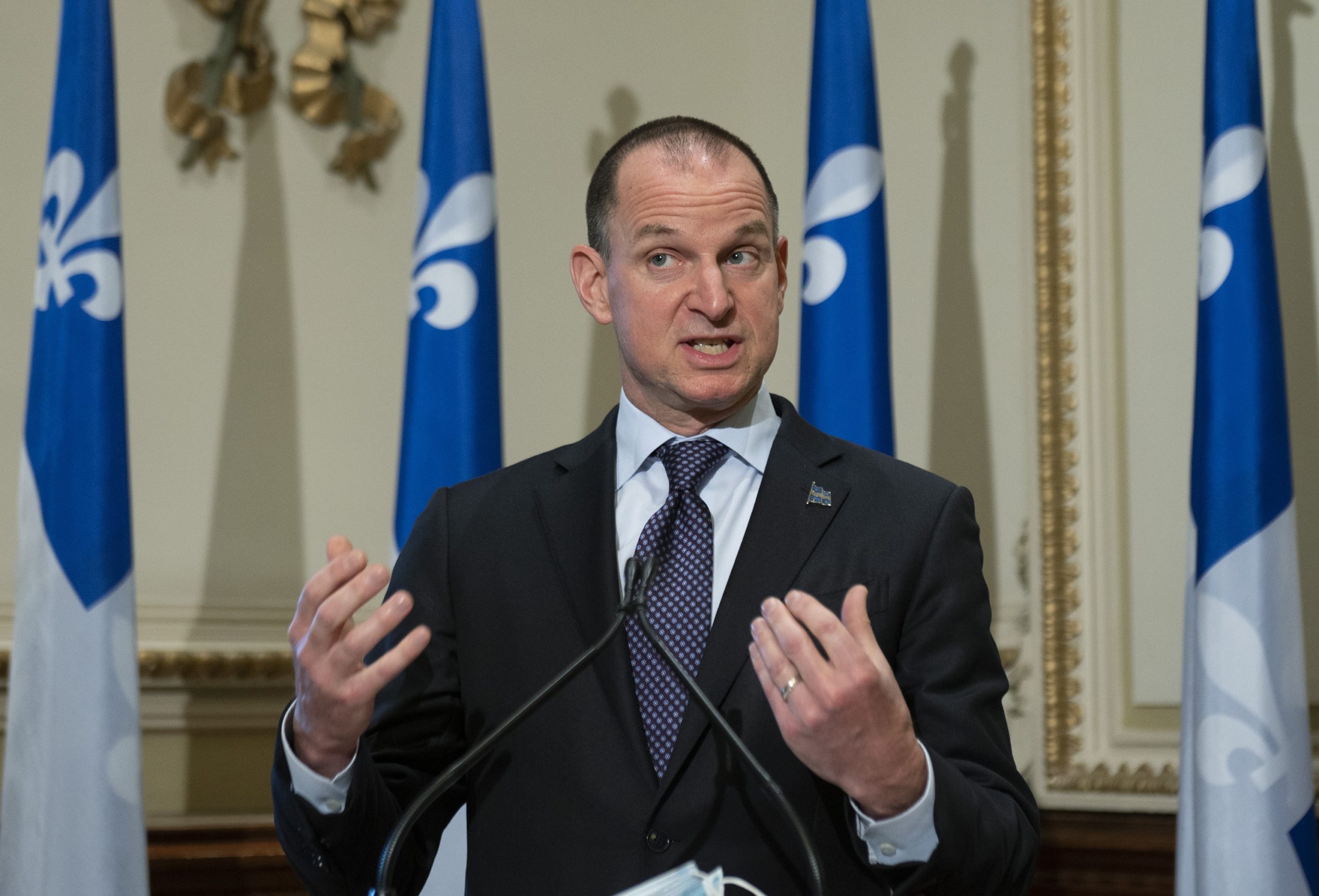Quebec budget update: 6.5 per cent GDP growth and cash payments to offset inflation

QUEBEC — Boasting that Quebec's economic growth is outpacing growth in the United States, Finance Minister Eric Girard presented a budget update Thursday that includes one-time cheques to offset inflation and that slashes the province's estimated deficit.
After contracting 5.5 per cent in 2020, Quebec's GDP will grow by 6.5 per cent this year — a jump of 2.3 percentage points compared to the 4.2 per cent growth that was predicted in the spring budget, Girard said.
The "fantastic" economic rebound, he added, would allow the government to cut the province's deficit, increase spending on programs aimed at reducing labour shortages, and invest more in the health-care system.
"The year 2021 is a year of exceptional growth," Girard told reporters after tabling his budget update in the legislature.
"Quebec growth is going to outpace the U.S., Canada, the world average. So this is giving us means. It's giving us $6 billion over the horizon of the financial framework."
Girard said Quebec's deficit is forecast to be $6.8 billion in the 2021-22 fiscal year, down from a projection of $8.3 billion in the spring budget. The deficit had been $15 billion in the 2020-21 fiscal year. The province's debt-to-GDP ratio is 44.3 per cent, down five percentage points from projections made in the spring budget, he said.
He announced a total of $10 billion in new spending over five years, enabled by tax revenue and federal government transfers that were higher than expected. Girard said the government aims to return to a balanced budget in the 2027-28 fiscal year.
And while Quebec has been calling for increased federal health-care transfers, Girard said those aren’t necessary to balance the province’s books, despite a structural deficit of $4 billion.
Among the measures included in the budget update are direct payments for low and middle-income individuals, aimed at countering the effect of inflation, which Girard said could be four per cent this year.
All adult Quebecers with annual income less than $50,645 will receive a $200 payment; those who live alone or with children under 18 will get an additional $75. Couples whose combined income is less than $55,912 will get a total of $400. The one-time payments to more than three million people will cost $739 million, Girard said.
The government is also doubling an annual payment for low-income people over the age of 70, from $200 to $400. About 709,000 people will benefit, Girard said.
The budget update also earmarks $3 billion over five years to retrain 170,000 workers, as the government looks to manage widespread labour shortages. The aid program will give junior college students an incentive bursary of $1,500 a year, above any existing aid, and it will give university students an incentive bursary of $2,500 if they're studying in a program that will lead to a "targeted" career in certain fields, such as health care, daycare, construction, and education.
Liberal finance critic Carlos J. Leitão told reporters his main issue with the update was what it didn't contain.
"In our opinion, the major absence in this economic and fiscal update is that there is absolutely nothing about climate change," he told reporters in Quebec City.
Leitão said the one-time payments are insufficient and that they should be reoccurring. The government's plan to address Quebec's labour shortage, he added, reflects short-term thinking and doesn't account for the province's aging population.
Girard also announced that the government will increase a refundable tax credit for people who send their children to unsubsidized daycares, as part of an effort to deal with the long waiting lists for spaces in its public system. The budget update also promises to spend $800 million to reduce the waiting list for surgeries.
This report by The Canadian Press was first published Nov. 25, 2021.
———
This story was produced with the financial assistance of the Facebook and Canadian Press News Fellowship.
Jocelyne Richer and Jacob Serebrin, The Canadian Press




